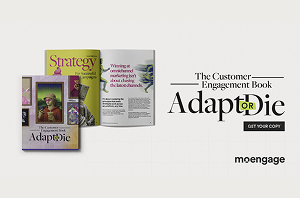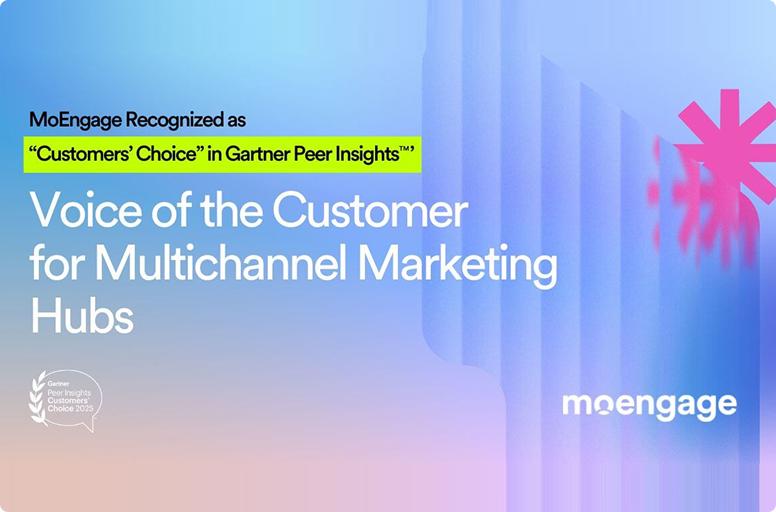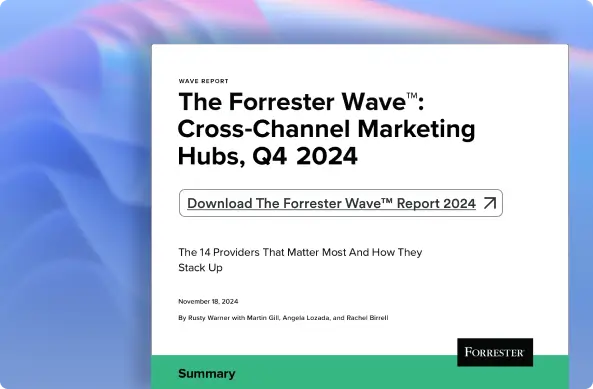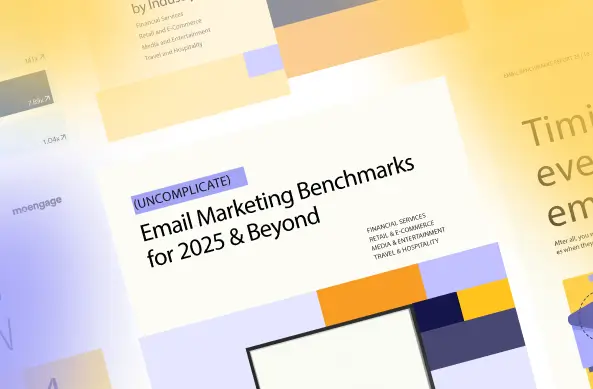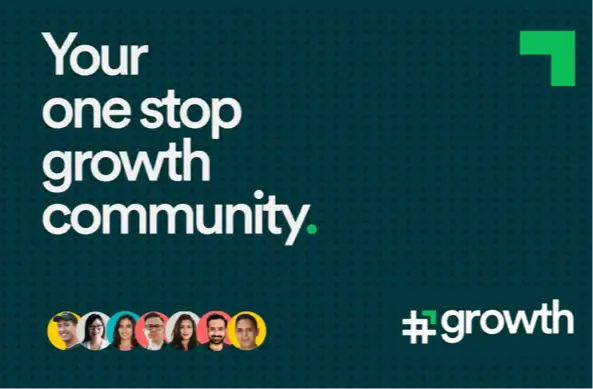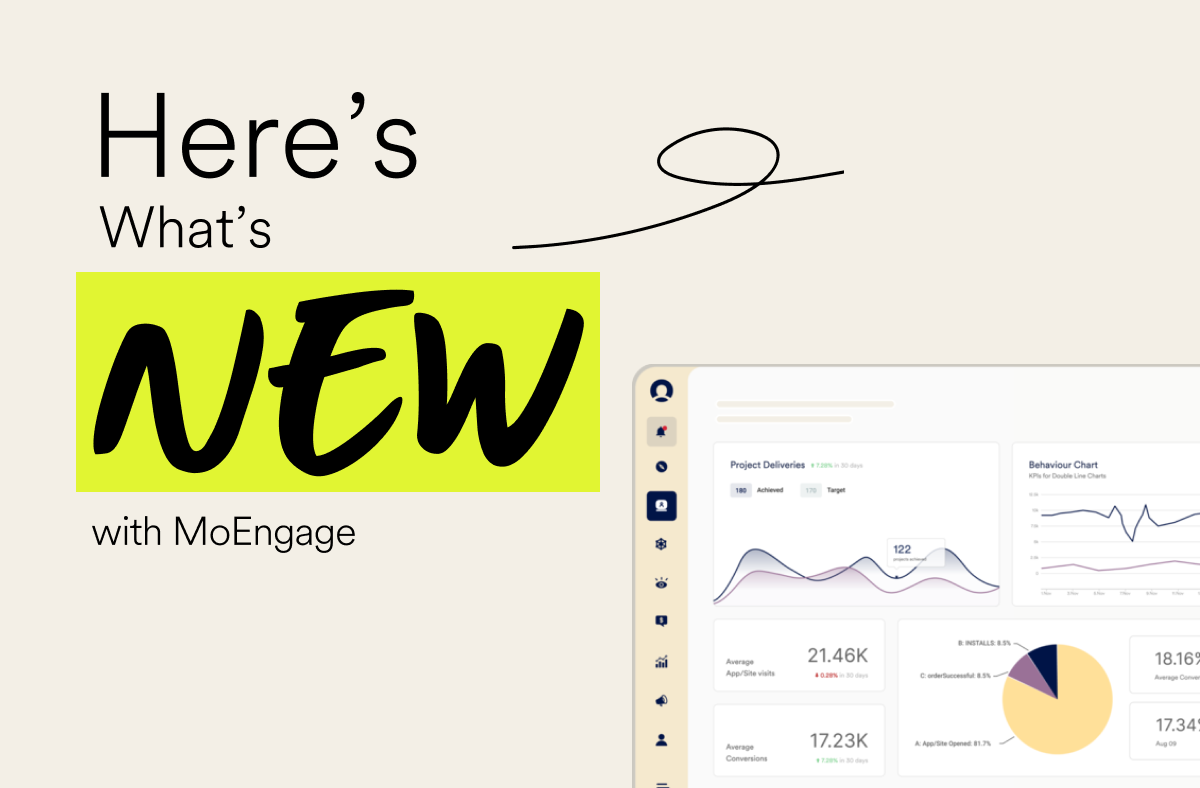How LivWell Monetizes Health, Rewards Wellness, and Grows Business During a Pandemic [Customer Spotlight]
![How LivWell Monetizes Health, Rewards Wellness, and Grows Business During a Pandemic [Customer Spotlight]](https://www.moengage.com/wp-content/uploads/2021/07/Customer-Spotlight-with-LivWell-1.png)
Reading Time: 13 minutes
Editor’s note: Customer Spotlight is an initiative by MoEngage, where we talk to our customers to understand their growth strategy, engagement tactics, and best practices across product & marketing. This customer spotlight features LivWell, one of the up and coming healthcare and wellness apps, based out of Southeast Asia.
If the pandemic has taught us one thing, in particular, it has to be prioritizing health and wellness above all else. There are tons of new health and wellness apps available in the market which allow you to exercise from home, join meditation sessions online, and participate in live training classes among others. And all of these apps have seen unprecedented growth in terms of usage, new users acquired, high retention, and overall time spent in-app.
In this article, we’re going to look at some of these aspects from the point of view of one app, based out of Southeast Asia which has been making huge strides in the healthcare and wellness vertical. And they have a unique way of doing it by implementing blockchain technology with brilliant incentives and gamification programs.
In order to peel back the layers on this topic, we have Mr. Nikhil Verma, the Co-Founder, and CEO of LivWell, one of the biggest blockchain-based health and wellness applications in Asia. LivWell rewards members for adopting healthier habits in real-time with smoothies, personal training sessions, gym memberships, insurance, and more. We will discuss how the healthcare and wellness brand is brilliantly monetizing health, rewarding wellness, and building an ecosystem that rewards a healthy lifestyle.
Why don’t you give us a brief introduction of your background, what you folks are currently doing at LivWell, what LivWell does as a health and fitness brand, and where did the idea come from?
Let me give a bit of background about myself. I have spent close to about 20 years in financial services, starting from India with HSBC, worked within retail banking and wealth management space. Then I moved to Hong Kong with HSBC, spent quite a few years in Hong Kong with the regional offices, got a very good overview of what’s shaping up the wealth management business, insurance business in particular. And that’s the time when I got my first impression of Vietnam, back in 2009. Asia and Southeast Asia for a lot of people back in the days was very much limited to Hong Kong, Singapore, Indonesia, Malaysia, or even Thailand for that matter. But Vietnam was totally obscured. So, 2009 was the first time I moved to Vietnam and since then never looked back. Spent over a decade in Vietnam now, working for insurance companies from the majors like Prudential, from global brands like AXA, spent time with Generali, and eventually ended my corporate career as a deputy CEO for Aviva Vietnam Life, a UK based insurer with a very strong presence in Vietnam.
Interestingly, I got into endurance sports just five years ago. I was introduced to running by my ex-boss from HSBC who was a running fanatic. He introduced me to types of nutrition needs, pair of shoes to wear. That passion for running and endurance sports got me excited about this whole space of wellness and how wellness and insurance are so interconnected. Being in the insurance industry, we used to always look for ways to project that we as an insurance company are here to take care of your wellness. And for obvious reasons, because if you are healthy if you are in top shape, our claims were lower, we were able to give you better products, and we’re able to underwrite you for a longer period of time. That’s the beauty about insurance. The other beauty about insurance is it doesn’t really value, at least in SEA, I haven’t seen a strong resemblance where insurance companies are able to give you the benefit of adopting healthier habits. A customer showing progression whether it is weight loss or increasing stamina should have their insurance reconsidered. The thing about insurance is you sign up today and literally lock yourself for the next 30-40 years depending on the policy and the premium doesn’t change. But your health actually improves every year if you do all the right things, but as an insurance company, we’re unable to take that call and give you the benefit of it. I wouldn’t say that was like the eureka moment that why this is not happening because insurance companies are always looking at creative ways of bringing this synergy together with what’s happened with your personal health and how does it come into insurance.
So, for me, my personal eureka moment was when I did my first Ironman and it is a mentally exhausting sport, I’d say. Literally, you’ve got to swim, cycle, and run for 6-7 hours and you really wonder in those 6-7 hours, what are you doing with your life because you have those 7 hours to yourself where you’re cursing yourself why the hell did you sign up but the moment you cross that finishing line that’s the eye-opener for you that you can do anything and anything is possible for you. That was the moment when LivWell as an idea originated and I felt there’s a huge potential for people who are active and want to adopt healthier habits should be able to monetize their health because health is one area that is expensive, getting diet right, getting a nutritionist, trainer, etc. Eventually, how do you monetize the effort that you’re putting in? Simple things like credit card companies will give you more and more for spending more, an airline will give you more and more for flying more or a hotel will give you more for staying in their hotel more but when it comes to your health, you keep logging in miles but nothing comes back to you in return, except the fact that you feel good. So, that’s the concept which underpins LivWell. We want to make health and wellness rewarding, not just you feeling good about yourself but actually utilizing the kilometers, the calories, the steps which you put in, in a meaningful manner which is rewarded in cash and also helps you to protect yourself because of the kind of data that we collect which goes back to the insurance company and helps them make better underwriting decisions. So, yeah that’s how LivWell got originated during the end of Ironman and since then there’s been no looking back.
Could you shed some more light on the blockchain-based implementation at LivWell and what it means in terms of your offerings?
See, we are a fitness application that also happens to do insurance and with the aim and aspiration to become an insurance company. We want to become a blockchain-based digital-only life insurance company. In fact, that’s the whole and sole purpose why we actually set out for what LivWell does because we believe there’s a better way to purchase insurance, getting products that are cheaper and easier to purchase with the simplified claims process and all of that can be managed through a well-engaging application. How many times in a day would you use an insurance application, rarely right? You’d use your banking app or a payment wallet or delivery applications more frequently than an insurance application because those are built keeping insurance in mind. What we’re trying to do is keep wellness at the core, and provide you a protection product through LivWell Care. In order to do that we needed a network that could be trusted and in today’s day and age your personal information has value in gold!
You don’t want anybody to know your BMI or heart rate or how your vitals fluctuate and that’s where blockchain comes in. Your health records and data can be stored and protected on a platform like Hyperledger and you can rest assured that this data will never be tampered with. Every week you hear about data breaches and we believe all of this can be tackled and avoided as long as you have a platform that handles and manages data properly. For us, it was critical from day one because we are collecting information from our customer’s wearable devices viz. heart rate, steps covered, challenges completed, average running rate, etc. The plethora of data available is protected and isn’t compromised at any stage. Therefore blockchain was introduced and our application is built on it.
Once we become a life insurance company itself, we would be able to process claims in real-time upon certain events covered in the insurance policies. Today, there are very few companies in the world that can actually do this kind of processing for claims and as you all know claims is the biggest moment of truth because you pay your premium for 40 years and when you need the money if you don’t get it, or have to go through the documentation, it can be painful. Blockchain provides that value, both from infrastructure and security and transactional capabilities from an insurance standpoint.
For a business, this young and amid a global pandemic, how did you build it for scale and growth?
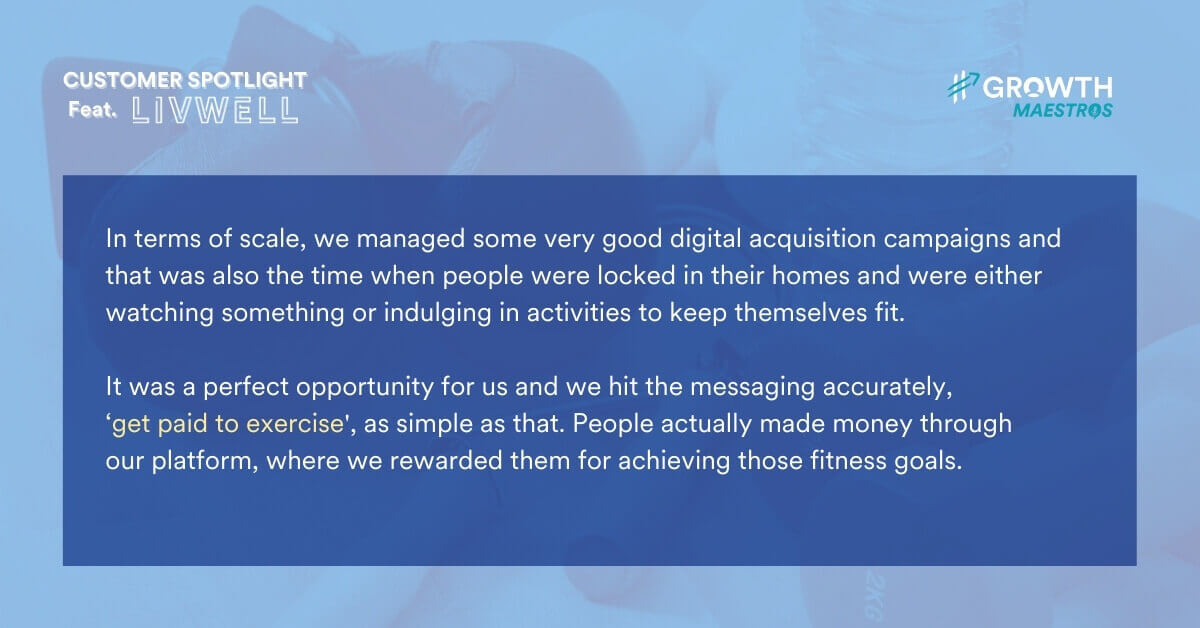
It was a tough period. The day when we first registered our company was the day when the first case was identified in Wuhan. We didn’t imagine how the world would change in the coming 2-3 months. We were lucky in some sense that we were operating in Vietnam, which has done a fantastic job in curbing and managing the pandemic. So, Vietnam provided that environment where we could carry our business as usual. We managed to strike very healthy relationships with partners like California Fitness and Yoga Centre (the largest fitness chain in Vietnam) who also happen to be our strategic partner. So, they saw and bought into the vision and for them, it was a brilliant opportunity to be part of a digital ecosystem that provides a lot of value to their members who can then use our application to book classes, get rewarded for classes. It’s a beautiful concept, right? I’m doing activities every day and now suddenly I actually get paid for it. The whole concept of exercise and get rewarded resonated very well with our strategic partners. They in turn helped us scale up during the time when the whole world was battling with Covid. There were challenges, especially in setting up our teams. We first worked with vendors before setting up teams in India.
In terms of scale, we managed some very good digital acquisition campaigns and that was also the time when people were locked in their homes and were either watching something or indulging in activities to keep themselves fit. It was a perfect opportunity for us and we hit the messaging accurately, ‘get paid to exercise’, as simple as that. People actually made money through our platform, where we rewarded them for achieving those fitness goals. There were months where we got 20,000-25,000 new active users joining us and we could clearly see their activity rate and the number of steps. That helped us because we were catching the tide where health and wellness started resonating with everyone and our strategic partners were crucial in propagating what LivWell stood for and made it part of their entire ecosystem.
In terms of the pandemic affecting the pace of business growth, how important of a role do you think it played in the adoption of LivWell as a product?
It played a big role as the only way to fight the virus, apart from getting vaccinated is to build immunity. That’s also the only long-term solution to fight against the virus. The whole synergy between what LivWell stands for today is to help people adopt healthier habits. If you have a very passive lifestyle and you’re not focusing on your diet or exercise, that’s a problem. You don’t need to make massive changes, but take a day at a time and that’s what we have been able to nail through our communication. LivWell essentially enables you to convert the walks you take to meaningful rewards, a week’s walk can amount to as high as $5-$10! We are providing hotel vouchers, shopping vouchers, electronics, and wearables to our customers where they can finish an activity and go to our partner store to claim rewards. It’s as simple as completing say 10,000 steps, going to a coffee shop, and use the LivWell Coins to claim your rewards. We have managed to capture the whole instant gratification angle of it. And our strategic partners played a huge role in bringing this communication to the customers.
LivWell provides challenges and step count exercises as means to earn coins that can be redeemed at partner stores. So, what is the scope of contextual customer engagement employed at your end? 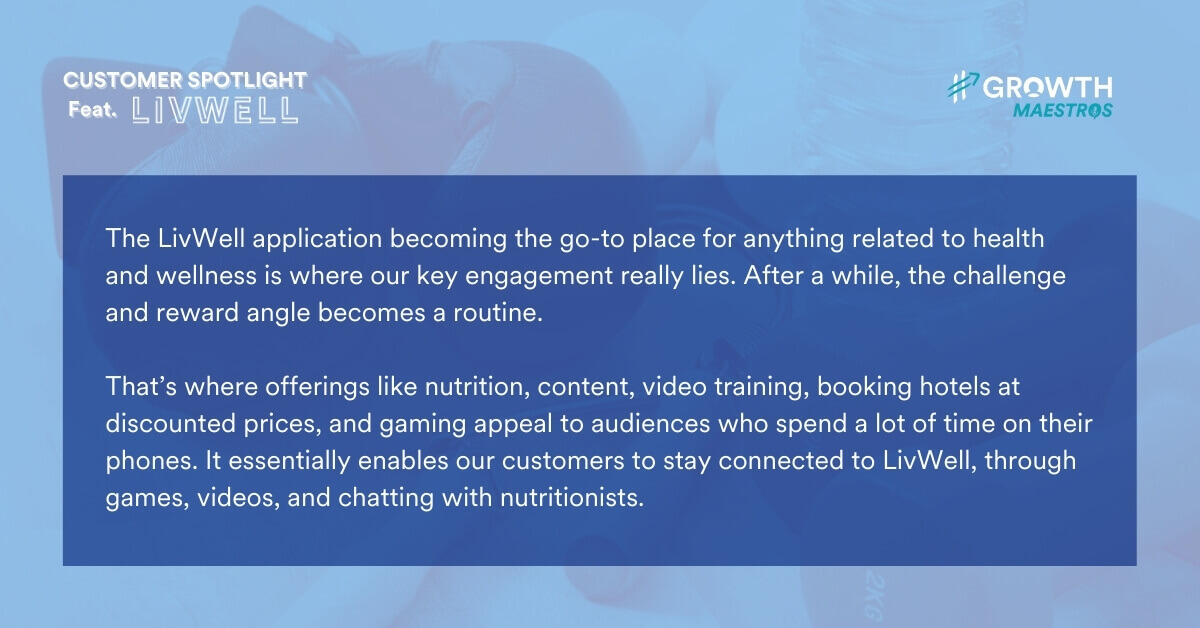
So, for us, we started our application with a very simple concept: you connect your wearable device, you take your steps, take on challenges and you get reward points. But as we keep getting feedback from our customers, we’ve realized that the LivWell application can incentivize you to do a lot of other things. We have recently introduced bite-sized meditation sessions as an offering and we’ve seen some great responses. We have introduced nutrition plans along with our partners at California Fitness and Yoga Centre, where if you purchase a nutrition plan, you can interact with nutritionists 24×7 about what you should be eating and meal plans for the day.
The LivWell application becoming the go-to place for anything related to health and wellness is where our key engagement really lies. After a while, the challenge and reward angle becomes a routine, and that’s where offerings like nutrition, content, video training, booking hotels at discounted prices, and gaming appeal to audiences who spend a lot of time on their phones. It essentially enables our customers to stay connected to LivWell, through games, videos, and chatting with nutritionists. These are the engagement touchpoints that we have built as part of giving our customers value in form of insurance at some stage. Customers can purchase insurance plans through our platform using LivWell Coins and cash.
What do you think is the psychological impact of instant and transparent rewards on the user psyche and consequent product adoption?
It has a huge impact in terms of engagement and the value of reward systems like LivWell. We live in a world where we want instant likes and comments on our videos and posts. At the same time, our attention span is very short and we’re on multiple platforms and loyalty applications with tons of businesses courting you to become loyal customers by offering discounts and deals. However, the unfortunate reality of a lot of the loyalty programs is that they reward you after a certain period of time after doing an activity for a sustained duration. But when we started with LivWell, our concept was very simple: If I finish my run now, can I get my coffee for free or can I get a discount for lunch? Customers don’t want to wait, if they burned calories today they’d want a burger today, and rightly so. With that concept in mind, we built an instant gratification system where customers can monetize and circulate the LivWell coins on a frequent basis. By offering customers the choice to use the LivWell coins and points in an easier way and at brands that are accessible to you.
What is the impact of partnerships in providing meaningful customer experience?
We operate in two domains: Wellness and Insurance. As far as wellness is concerned, we are well entrenched with CFYC and their member ecosystem, which provides LivWell members with a host of benefits on a real-time basis.
When it comes to insurance, our partnership with Allianz and PetroVietnam Insurance (the second largest general insurance company in Vietnam) has been monumental for us, especially to believe in the concept when we barely had 1000 LW members. We work with them to come up with customized products like our exclusive white label personal accident cover, no questions asked, available on our application and you can purchase depending upon needs. All of this is possible only when you have partners who believe in the fundamental potential and long-lasting impact of health and wellness.
We can’t have a customer spotlight with LivWell and not ask about the future product roadmap and expansion scope at LivWell.
We keep evolving our product rollouts on a regular basis.
On the wellness side
- we have launched nutrition plans through our application where customers can interact with nutritionists, get a diet plan, and more
- we’re also coming up with a short reels feature, where members can upload their fitness routine in form of videos and earn points based on likes and views
On the insurance side, we’re looking at
- introducing flexible personal accident cover which you can purchase for 1 month, 3 months, 6 months and use your LivWell Coins to make that purchase in addition to cash
- coming up with a cancer care product that will aid in covering the expenses of medication and treatment via an affordable cancer care plan
In terms of market rollout, we have recently secured a license in India to go live as a broking firm where we can offer retail solutions to our LivWell members and we plan to go LIVE by the 4th quarter of 2021. India and Vietnam are the key focus markets for us with India having a huge potential on the health front and Vietnam boasting a young market with excellent e-commerce opportunities.
There has been a renewed interest in adding the social media aspect to apps to increase engagement, in-app time spent, and build a community of engaged members. Do you envision the reels feature to fit into this narrative?
Our core still remains to be health and wellness. We want to ensure our members adopt a healthier lifestyle and reward them accordingly. If a community excites our members and incentivizes them to exercise, we’d definitely want to build that community where LivWell members are able to promote, influence, and help each other. But we don’t want to become the next social media platform for fitness. That’s not the reason why we are here today. For us, engagement and providing value to our members matter the most.
However, on the insurance side, we see that as a value. Insurance applications are often viewed as boring meant to serve only insurance needs. You hardly see any example where insurance companies have tried to speak the language of the people., whether it is the 30-second videos, stories they share, rewards they’re earning or the holiday offers they can avail. Now, that’s the language that we want to speak and as part of that, if they see the value offered by LivWell Care, that’s a win-win situation.
As a part of our customer spotlight with LivWell, could you give us an insight into your engagement and retention strategies?
Our retention strategies are evolving all the time. We believe as long as we are able to bring in reputed brands onto our platform (who value health and wellness) which results in higher redemption, our retention strategy is taken care of. We want our LivWell Coins to be circulated which is proof that people are getting value out of the points being generated.
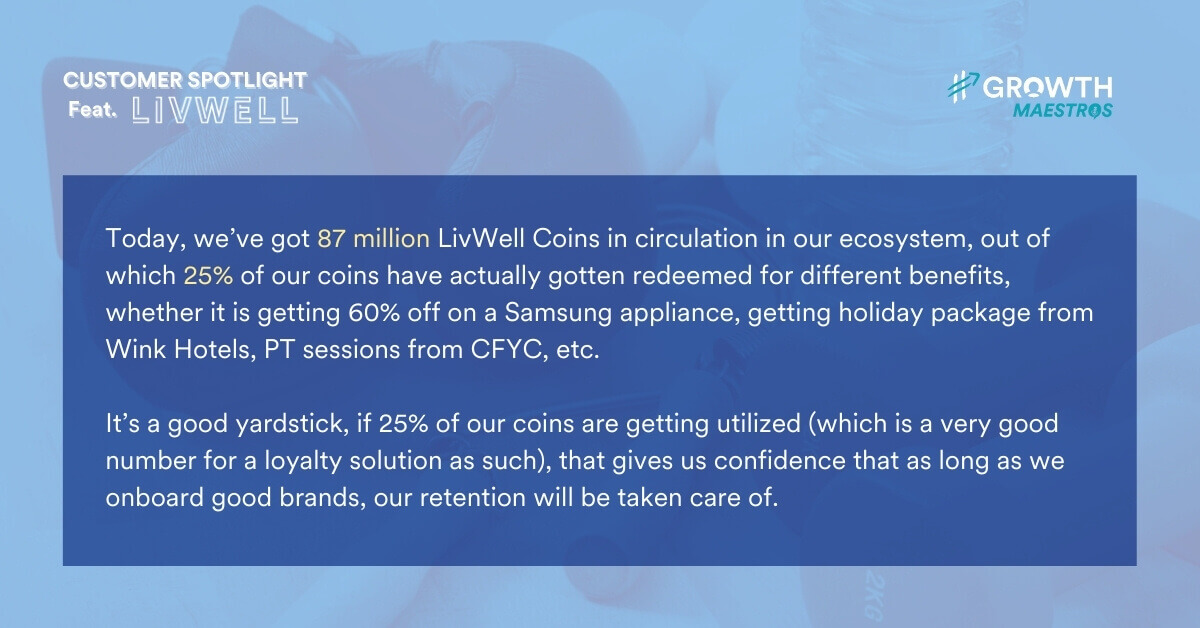
Today, we’ve got 87 million LivWell Coins in circulation in our ecosystem, out of which 25% of our coins have actually gotten redeemed for different benefits, whether it is getting 60% off on a Samsung appliance, getting holiday package from Wink Hotels, PT sessions from CFYC, etc. It’s a good yardstick, if 25% of our coins are getting utilized (which is a very good number for a loyalty solution as such), that gives us confidence that as long as we onboard good brands, our retention will be taken care of.
The other area is to add more wearables because wearable penetration in SEA is unfortunately not that high, with little over 8-9% of the population having such a device. We want to bring more and more devices to our platform which will increase our reach and have a wider appeal across audiences. This would help bring more acceptance of the LivWell application.
Through different modules, rewards, video as content, LivWell exclusive offers, creating a mini e-commerce store to enable the purchase of airline tickets, hotel vouchers, and expensive goodies via LivWell Coins will ensure we keep engaging our customers.
We have seen immense value with MoEngage, the tool we’ve been very happy to work with so far. The granular level of details, the kind of campaigns we can set up, looking at different segments at a customer level have been big drivers for having a calculated approach towards our segmentation and retention strategy. It is still early days for us, it’s been 10 months and we’ve close to about 70,000 active users at this time. We’re still exploring the perfect segmentation model for us, should it based on activity (viz. step count) or LivWell Coins burned on the application. It is still a struggle and we’re finding the perfect formula but we definitely would look at how active people are versus the kind of LivWell Coins they’re able to generate because it’s not about how much time you’re spending on the application.
Further Reading:
- Speaking of healthcare and fitness, find out how the Indonesia healthcare super app, Alodokter witnesses a 45% uplift in engagement using AI-based campaign optimization!
- Want to implement a three-point strategy to grow your digital customers? Find out here!
- Struggling to frame omnichannel growth strategies for your business? Say no more, check out how experts do it!

